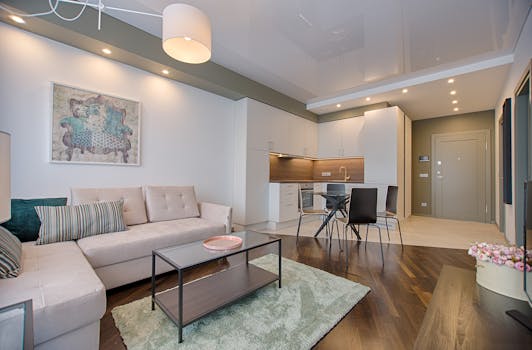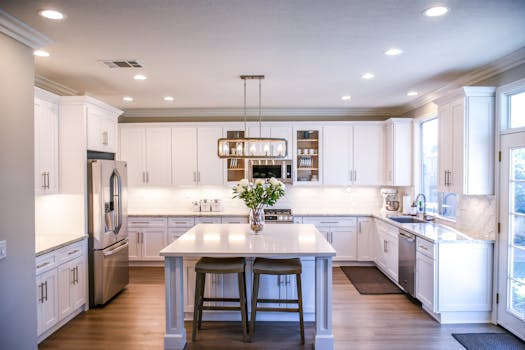South Korea is rapidly transforming into a nation of single-person households. In 2024, more than 1 in 3 households in Korea consisted of just one person — a growing trend driven by changing lifestyles, work patterns, and global mobility. But for foreign nationals living in or moving to Korea, finding stable and affordable housing can be confusing, especially with cultural and legal differences.
The good news? Rental housing — both public and private — is becoming a flexible, accessible option not just for Koreans, but increasingly for foreign residents as well.
Let’s break down how rental housing in Korea works, what options are available to foreigners, and how you can benefit from the evolving housing market.
Why Rental Housing Is Gaining Popularity in Korea
In the past, owning a home was considered essential in Korean society. But skyrocketing housing prices, job mobility, and lifestyle changes are leading many — especially young people, professionals, and expats — to prefer long-term rentals.
Recognizing this shift, both the Korean government and private companies are creating new rental models that are:
- More stable (multi-year lease contracts)
- Better serviced (furnished, with maintenance support)
- More inclusive (available to foreigners)
- Located in accessible urban areas

Rental Housing Options in Korea for Foreigners
1. Private Rental Housing
- Owned and leased by individuals or companies
- Includes apartments, officetels, villas, and share houses
- No nationality restrictions — foreigners can freely rent
- Contracts usually last 1 or 2 years (renewable)
- Rental forms:
- Jeonse: Lump-sum deposit, no monthly rent
- Wolse: Lower deposit, monthly rent
- Mixed: Some deposit, smaller monthly rent
Tip: Always have a written contract, and if possible, register your lease with the local government to protect your rights.
2. Public Rental Housing
- Managed by the Korea Land & Housing Corporation (LH) or Seoul Housing & Communities Corp (SH)
- Offers affordable housing with stable leases (4–20 years)
- Usually reserved for Korean citizens, but some exceptions exist for:
- Long-term visa holders (F-2, F-5)
- Foreigners married to Korean nationals
- Foreign students (in special programs)
- Application involves eligibility screening (income, assets, visa status)
Most public rental housing programs are not open to short-term residents or those on tourist visas.
3. Publicly Supported Private Rental Housing
- A hybrid model combining private housing with public support
- Available to broader groups, including some foreigners
- Features:
- Long-term lease (8–10 years)
- Rental price below market average
- Located in new urban development areas
- Some units are foreigner-friendly with English service support
- Application via online platforms (e.g., LH청약센터, SH공사)
Who Can Apply? (As a Foreigner)
| Type of Housing | Foreign National Eligibility |
| Private Rentals | Yes (no restriction) |
| Public Rentals (LH, SH) | Limited (only with long-term visa, or special status) |
| Publicly Supported Private Renta | Some programs allow foreigners |
| Corporate Lease Housing | Yes (through employer or expat relocation agencies) |
To qualify for public or semi-public rentals, you may need:
- A valid Alien Registration Card (ARC)
- A visa allowing long-term stay (e.g., F-2, F-5, D-2 for students)
- Proof of income or employment in Korea

Where to Find Rental Housing as a Foreigner
- Korea Housing Lease Portal: https://www.oneroom.co.kr – English support available
- Zigbang, Dabang, Peterpan House – Popular mobile apps for onerooms and officetels
- LH / SH Housing Websites – For applying to public housing (Korean only, but some offer English FAQs)
- Foreigner-specific Real Estate Agents – Especially in Seoul, Busan, and major university towns
What Should You Prepare?
Before signing a lease in Korea, prepare:
- Passport + ARC
- Visa status confirmation
- Proof of employment / university enrollment (if applicable)
- Korean phone number (often required)
- Korean bank account (for deposits/rent)
Most landlords require:
- 1–2 months’ rent deposit
- Real estate agency fee (0.2–0.9 months’ rent)
- Maintenance fees in apartments (for elevator, security, cleaning)
Bonus: Why Korea Is Improving Housing Access for Foreigners
The Korean government sees international residents — students, workers, investors — as important contributors to the economy and culture. As of 2024, over 2.2 million foreigners live in Korea, and demand for housing is rising.
To support this, there are increasing efforts to:
Expand foreigner-inclusive housing
Provide English-language housing guides
Offer consultation support for expats
Final Thoughts
Whether you’re a student, digital nomad, researcher, or professional, rental housing in Korea is becoming more accessible, affordable, and flexible. You don’t need to buy property or speak perfect Korean to secure a safe and comfortable home here.
The future of housing in Korea is renter-friendly — and foreigners are part of the vision.
Thanks for breaking down Jeonse and Wolse so clearly—those terms can be really confusing for newcomers. It’s encouraging to see that rental options are becoming more foreigner-friendly in Korea’s evolving housing market.
Thanks so much for the wonderful comment! It makes me really happy that my article helped clarify Jeonse and Wolse for you. I’m hoping the complex Korean housing market becomes even more accessible for foreign residents, and I’ll definitely keep sharing valuable tips going forward. Keep an eye out!